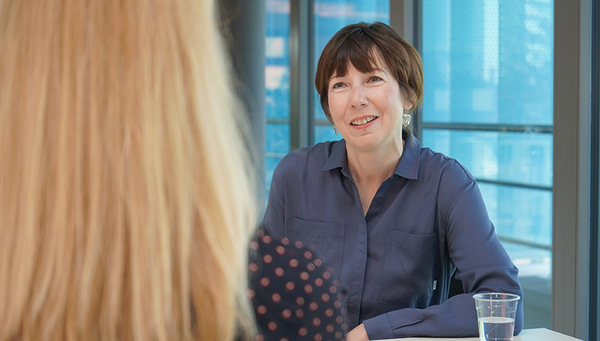News Detail
Lenny Winkel appointed ETH professor
September 19, 2024 |
Lenny Winkel is internationally recognised as a leading expert in the field of biogeochemical cycles, in particular selenium. In her award-winning research, she investigates the environmental behaviour of selenium and other trace elements such as arsenic, which can accumulate in groundwater and have an impact on health. Lenny Winkel builds bridges between research groups and institutes at ETH Zurich and at Eawag, where she is a member of the directorate and group leader in the Water Resources and Drinking Water department. In 2019, she was awarded the ETH Zurich Golden Owl for her commitment to teaching.
Motivating students to think critically
Winkel - delighted with the promotion - praises her team in particular: ‘We will continue our research and teaching activities at both institutions. I am grateful for the support from both institutions and especially from my team members, who also work at two institutions,’ she says. The profession of professor is a job with many responsibilities and different tasks. She likes this diversity. In both her research and teaching, she motivates students to take a broad perspective and make connections to related disciplines or topics. ‘I hope to inspire students to think independently and critically and encourage them to take a creative and interdisciplinary approach to ecological challenges,’ says the geology graduate.
Fascinating cycle of trace elements
Winkel first came to Eawag as a postdoc in 2006. She worked on spatial predictions for the toxic element arsenic in groundwater. After a postdoctoral project abroad, she returned in 2011 as an SNSF-funded professor. ‘Since then, I have been fascinated by the cycle of chemical elements that occur in relatively small quantities and are therefore referred to as trace elements, but nevertheless have an important influence on health.’ Among other things, she investigates the pathways of these elements within and between different compartments, e.g. from groundwater via irrigation into the soil before they reach the plants or are emitted into the atmosphere and finally return to the soil via precipitation.
Inorganic Environmental Geochemistry Research Group:
https://www.eawag.ch/en/department/wut/main-focus/environmental-inorganic-geochemistry/

